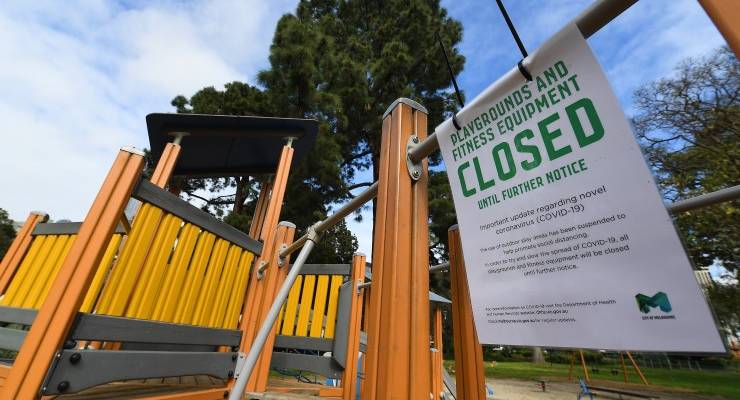
“Get me a one-handed economist,” Harry Truman is said to have demanded. “All my economists keep saying ‘On one hand…’ then ‘but on the other…’”
The president’s frustration is a familiar one. Who doesn’t want an unequivocal explanation of a complex, adaptive and uncertain world? Making decisions can be hard. Trade-offs and value judgements are needed. Information is always imperfect.
If variety is the spice of life, uncertainty is the sauce.
Not for the cadre of newly minted economists, epidemiologists, virologists and psychiatrists, though, who seem to be quite certain how to manage the COVID-19 pandemic.
Everyone is permitted to an opinion, of course. But commenting on a virus that may have killed up to 15 million worldwide requires more than a feelpinion and might be better approached acknowledging the complexity, the stakes involved, and the diabolical choices faced by decision-makers. Here are three rules of engagement that might assist commentators in their thinking and their writing, publishers in their decisions on what to publish, and readers in appraising the merit of what they’re reading.
Think about conflicts of interest and perspective
This one seems simple at first. If your income is affected by closures and movement restrictions, it’s a good idea to say that up front (not just in the bio). It gives the reader the information about any real or perceived agenda as they’re reading.
But what about those who are not financially affected by a lockdown or not affected by lockdowns at all? This is me on both counts. My work and income, while certainly affected by the pandemic, are not at all disturbed by a lockdown. Moreover, I’m based in Perth which has been virtually COVID-free compared to the eastern states.
Does having very little skin in the game invalidate my take? Is it a conflict of perspective? In the eyes of some, perhaps. So for the sake of transparency I suggest declaring one’s personal and professional circumstances (something I will endeavour to do from now on when writing on this topic).
Acknowledge the dynamic nature of the situation
One of the great mistakes of analysing complex systems is assuming things are linear — that patterns don’t change over time and that altering one aspect does not result in adaptation elsewhere. The pandemic is far from static. It’s a complex biological, social and political phenomenon. The virus evolves and adapts, as does individual and group behaviour in trying to live with it. This has several implications.
It’s generally thought that people largely follow instructions and orders on limiting the spread of the virus. It’s also understood that they restrict their movement and social contact regardless of official policy. But does this hold for the third wave? The fifth wave? Lockdowns within months of each other?
The impact on mental health is a strong argument against prolonged restrictions. It should be monitored. But then again, what about the impact of a much higher death toll? Equally, overloading the healthcare system will have deleterious consequences on people’s health.
Meanwhile, the virus is busy adapting. Based on early laboratory work, the emerging Mu variant may be more resistant to vaccines and natural immunity. If this is the case, it will significantly alter the debate on how to best manage the disease.
Use data (without cherry-picking)
Perhaps the most important rule, and it’s quite simple: examine the available data from reputable sources. If they support your take, present them while acknowledging that data is always imperfect and that new data may emerge. If they don’t support your take, perhaps change the take or stop writing.
The Swedish model was recently again favourably compared to Australia’s way of dealing with the pandemic: fewer deaths, more freedoms, lower impact on mental health.
There’s no questions that the human impact of restrictions is real. Children’s mental health, education and social development will be affected. Prolonged school closures may widen social and economic inequality. The true impact will not be known for some time and must be monitored. Suicide rates in Victoria, which has arguably seen the toughest lockdowns, thankfully do not appear to be increasing but they are a blunt metric.
But the first thing an objective appraisal of the available data shows is that Sweden’s cumulative death toll from COVID-19 dwarfs that of its Nordic neighbours and Australia. In fact, for every Australian death 36 Swedish residents died from COVID-19. There may have been very few deaths in Sweden recently, but this is also the case for its neighbours. It’s cumulative deaths that matter here, not least because the trauma to the community would be considerable.

Yes, deaths are a blunt metric. COVID-19 has been targeting older people and one can certainly argue that the figure would be less devastating if we counted lost life years. Whether this would outweigh the costs of lockdown (see below) can be debated. On the other hand (sorry, Harry) there’s the costs of hospitalisation, disability and time off work to consider.
In any case, please refrain from using quality-adjusted life years (QALYs). These are designed to assess the effectiveness of medical technologies that extend life and not the impact of a life-limiting disease. For that we have the Disability-Adjusted Life Year (DALY), and studies using this metric are still emerging.
Meanwhile, latest data suggests that Sweden’s economic output has been similar to its neighbours and Australia, which saw the greatest average quarterly growth over the period (0.37% compared to 0.13% for Sweden, 0.19% Denmark, 0.17% Norway, -0.02% Finland).

Yes, data can be interpreted in different ways and cherry-picked. The negative “deaths versus economic growth” correlation did the rounds last year. Typically, countries that didn’t fit the trend were excluded. Currently the situation looks very equivocal using an unbiased sample (OECD countries in the chart below). But remove seven data points (in orange) and one can start to see a pattern. Resist the temptation. (And by the way, such correlations rarely explain much in our complex world.)

And after all that, the Oxford University Stringency Index suggests that Swedes have, overall, not been as free from restrictions as has been reported, perhaps making the entire argument somewhat irrelevant. Then again, had the NSW government acted more decisively in June this year, or the Commonwealth moved to secure Pfizer doses earlier, we may also not be having this discussion (although, as I’ve argued previously on the latter, securing more vaccines when in such scarce supply could have merely transferred the toll elsewhere).

(The above index is based on nine metrics: school closures; workplace closures; cancellation of public events; restrictions on public gatherings; closures of public transport; stay-at-home requirements; public information campaigns; restrictions on internal movements; and international travel controls. A higher score indicates a stricter response.)
It’s important to debate managing a deadly pandemic. But the debate will benefit everybody if some basic rules are followed.








In general, good rules I try to adhere to when offering a comment, or an alternative to someone else’s comment, include:-
there’s probably plenty more good rules to be keep in mind when discussing stuff on line, but the overarching motivation in all discussions should be, imo, a genuine search for what is true, as opposed to winning for its own sake, and trying to stay on target despite all the red herrings, garden paths and ad hominem.
Great comment – thanks.
In an ideal world, everyone would, for the most part, abide by the points you make, particularly so when a contributor takes a contrary position to the majority of comments. That, in my opinion, is where your very observant suggestions are sorely missed.
But we live in hope!
Hope is a word that definitely needs to be defined and operationalised generally and in context. Often the word ‘hope’ is used generally but not specifically.
Do we live in hope? Should we live in hope? Can we…? what is it about hope that is good? What is is about….that is bad? When is hope good? When is…bad? Does the word hope enable or disable and in what context? Does hope encourage further thought or discourage further thought or discussion? etc.
A statement may be true or not according to opinion or fact. I live in hope is not the same as we live in hope. Words can close or open discussion.
Agreed!
The physical overwhelming on these threads, no matter the topic, is very disheartening.
The comments were once fr more interesting & informative than the tediously quotidian ‘articles’.
This is no longer the case unless there are gems hidden within the acres of verbiage from one prolix source.
This is no longer the case unless there are gems hidden within the acres of verbiage from one prolix source.
Snark snark. Thankfully there is a diverse range of comments with references for further enlightenment, you should add some now and then, it may help your point
Makes sense Luke. But like you, I’m in Perth, and whilst I shouldn’t be commenting on the effectiveness of lockdowns in Melbourne, it does give me licence to speak on the effectiveness of sharp lockdowns in Perth. It also gives me absolute authority to weigh in arguments about opening up within Australia when we’re being affected. Trading off our existing freedoms in WA (there’s virtually no restrictions about doing anything we can normally do) for the ability to travel interstate is a very high price to pay for disruption, illness and death spikes from a ramp-up in COVID. So I do not like being lectured by eastern staters claiming their divine right to travel unimpeded into WA, no matter how many epidemiology or economics qualifications they may have.
I can understand this position, but taken to its logical conclusion it suggests WA shouldn’t open borders for a long time, probably for years. In your view, Peter, what is the view on the ground in WA? Do many people actually want to open to other states and internationally even at 80% double dose? (I’ve heard a WA man say they shouldn’t have to get vaxed, because the borders should simply stay closed.) I guess most Easterners like me don’t really mind if WA wants to stay closed, just as long as it doesn’t affect the opening of society and international borders over here. I do feel for all the separated families, but I guess that’s something for the WA population to speak up about.
Good article. I assume it’s not a coincidence that it sits underneath Adam’s latest advertorial.
It’s distressing how Australia’s ‘Stringency Index’ has been maintained at such a high level since about July 2021, along with our reluctance to fully vaccinate the population, where for all Scandinavian countries, it has fallen right away as they have vaccinated their populations and opened up their countries.
I wonder if the majority of Australians realise what is happening?
“The Swedish model was recently again favourably compared to Australia’s way”. That comparison is a Crikey article which is at best as opinion piece which was eviscerated by commentators with appropriately specialised knowledge.